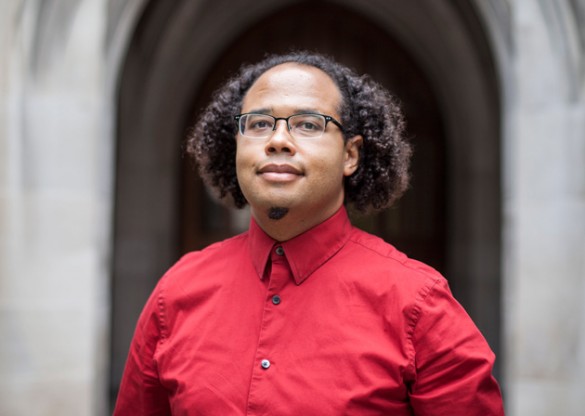
Carwil Bjork-James’ research pertains to South America, but on an August afternoon a week before the fall semester started, his thoughts were on Egypt, where the death toll was still rising after a violent crackdown on anti-government protestors in Cairo.
Bjork-James usually focuses on how groups use and take over public spaces in Bolivia and how those events become politically significant. It was impossible not to draw parallels.
After earning a master’s in public policy from the University of Chicago, Bjork-James began a career in environmental and human rights advocacy, working with indigenous communities in Alaska, Nigeria and Colombia. He noticed the local communities “were doing extremely interesting—sometimes heroic—things in order to prevent new drilling on their land or to deal with long-term pollution problems.” He decided to pursue cultural anthropology at the City University of New York to better understand these kinds of social movements.
Bolivia turned out to be an especially rich place to explore these issues. The nation has been a hotbed of protest for more than a decade, beginning with the Water War of 2000, when the people of Cochabamba protested the privatization of the city’s water supply through a series of strikes, roadblocks and public meetings that lasted several months. Bjork-James’ dissertation examined how these protests have evolved in the years since and how they continue to affect the country.
Bjork-James believes the discipline of anthropology is uniquely suited to understanding these movements, because so much of what makes social protests significant occurs “on a very human scale,” he said. It’s not just the ideas that people think of when they remember a protest, but the physical experience of protesting—who brought them food, who gave them vinegar to combat tear gas—and the solidarity those shared experiences created. Bjork-James will be teaching Andean Culture and Society this fall. “[rquote]I’m very excited about engaging with Vanderbilt students,” he said.[/rquote]
Beyond that, he’s looking forward to going back to his data and answering some questions he didn’t address in his dissertation. At what point, Bjork-James wonders, does government repression of popular movements become difficult or impossible?
It’s a worthy question to ask at any time, but in the age of the Arab Spring and Occupy Wall Street, it couldn’t be more relevant.
View the complete list of new university faculty for 2013-14.
View the complete list of new medical faculty for 2013.